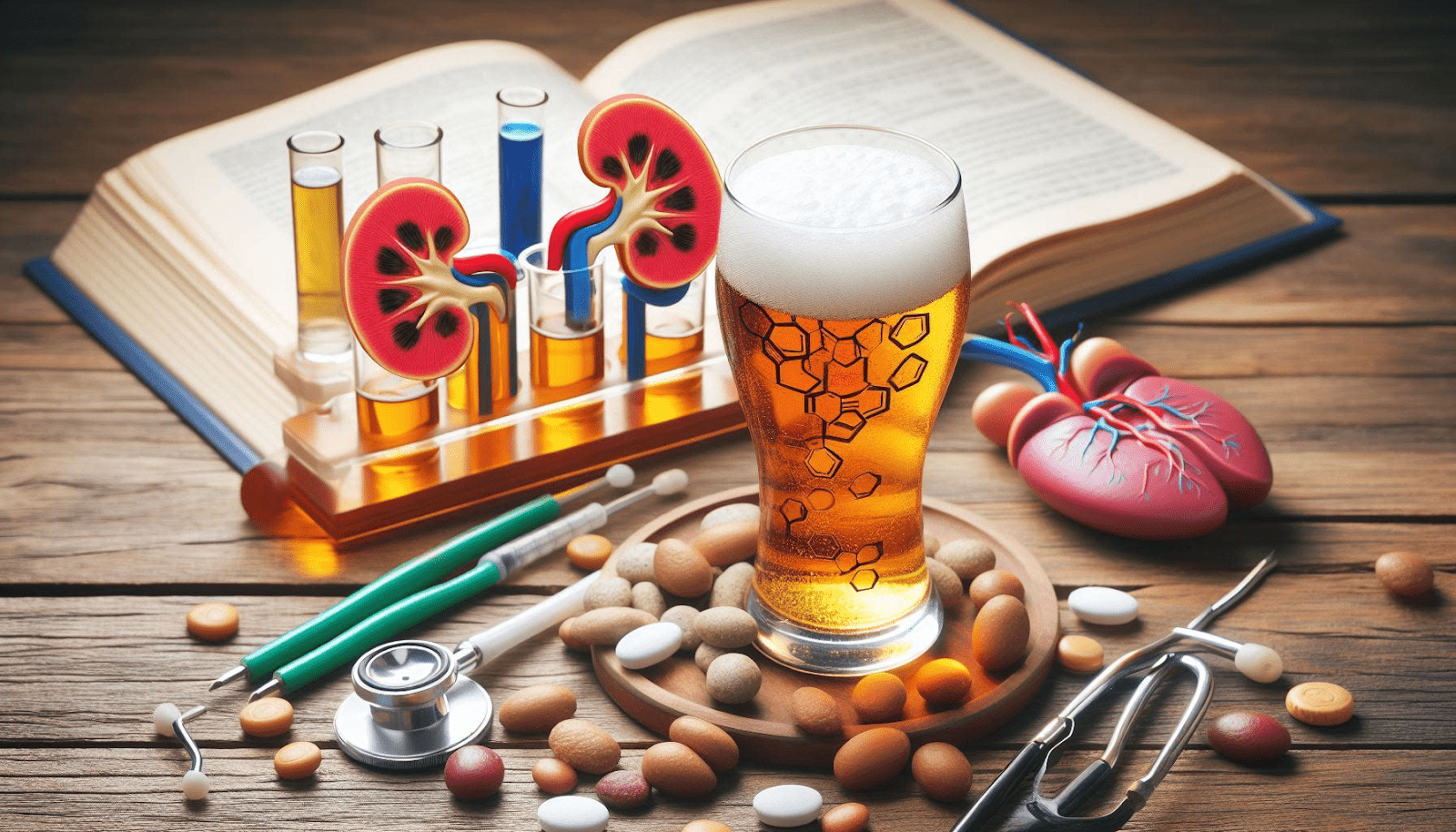Understanding the Relationship Between Beer and Kidney Stones: Debunking Myths and Examining the Science

Kidney stones are a painful condition affecting millions worldwide, characterized by the formation of solid mineral deposits within the kidneys. While various factors contribute to their development, including genetics, diet, and hydration levels, the role of certain beverages like beer has sparked curiosity and debate. In recent years, conflicting opinions have emerged regarding whether beer consumption can either exacerbate or mitigate the risk of kidney stones. This article aims to delve into the science behind this topic, exploring the effects of beer on kidney stone formation and providing evidence-based insights.
Understanding Kidney Stones:
Before delving into the beer-kidney stones relationship, it’s crucial to understand the nature of kidney stones. These are solid crystalline structures formed from substances in the urine, such as calcium, oxalate, and uric acid. Factors influencing kidney stone formation include inadequate fluid intake, high dietary salt and protein, obesity, and certain medical conditions. Prevention strategies often revolve around dietary modifications, increased hydration, and medication, depending on the type of stone.
The Beer Factor:
Beer, one of the oldest and most widely consumed alcoholic beverages globally, contains water, alcohol, carbohydrates, and various compounds such as hops, malt, and yeast. The debate surrounding beer’s influence on kidney stones arises due to its alcohol content, fluid properties, and other constituents.
Alcohol Content:
Alcohol, present in varying concentrations in different beer types, has diuretic properties. This means it increases urine production, potentially aiding in the flushing out of certain substances that contribute to stone formation. However, excessive alcohol consumption can lead to dehydration, which may concentrate urine and promote stone formation. Thus, moderation is key.
Fluid Intake:
Beer’s high water content contributes to overall fluid intake, potentially diluting urine and reducing the concentration of stone-forming substances. Studies suggest that adequate hydration is crucial in preventing kidney stones, as it helps maintain urine volume and reduces the likelihood of crystal formation.
Hops and Phytochemicals:
Hops, a key ingredient in beer, contain certain phytochemicals with antioxidant properties. Some research suggests that these compounds may have anti-inflammatory and diuretic effects, potentially influencing kidney stone formation. However, more studies are needed to elucidate the specific mechanisms and effects of these compounds on kidney health.
Oxalate Content:
Oxalate, found in varying amounts in different foods and beverages, is a precursor to calcium oxalate stones, the most common type of kidney stone. While some beers contain oxalate, the concentration is generally lower compared to certain foods like spinach and nuts. Moderate beer consumption, therefore, may not significantly contribute to oxalate intake or stone formation in individuals without predisposing factors.
Moderation and Individual Factors:
Like many dietary factors, the relationship between beer consumption and kidney stones is complex and influenced by individual characteristics such as age, sex, medical history, and overall lifestyle. While moderate beer consumption may offer potential benefits, excessive intake can negate these effects and increase the risk of various health problems, including kidney stones.
Research Insights:
Scientific studies investigating the relationship between beer consumption and kidney stones have yielded mixed results. Some observational studies suggest a potential protective effect of moderate alcohol consumption, including beer, against kidney stone formation. However, these findings are not conclusive, and further research is needed to establish causality and clarify the underlying mechanisms.
A study published in the American Journal of Epidemiology found that moderate beer consumption was associated with a lower risk of developing kidney stones in middle-aged men. However, the study also highlighted that excessive alcohol intake, particularly from spirits, was linked to an increased risk. This underscores the importance of moderation in alcohol consumption.
Another study published in the Clinical Journal of the American Society of Nephrology examined the effects of different alcoholic beverages on kidney stone risk. The researchers found that moderate beer and wine consumption were associated with a lower risk of developing kidney stones, whereas excessive alcohol intake, particularly from liquor, increased the risk.
Contrary to these findings, some studies have suggested a potential link between beer consumption and an increased risk of kidney stones. A study published in the American Journal of Kidney Diseases reported that beer intake was associated with a higher risk of developing kidney stones in men. However, the study’s authors noted that the association was primarily observed with higher beer consumption levels.
Conclusion:
In conclusion, the relationship between beer consumption and kidney stones is complex and multifaceted. While moderate beer intake may offer potential benefits, such as increased fluid intake and diuretic effects, excessive consumption can lead to dehydration and other adverse health effects. Individual factors, including overall diet, lifestyle, and medical history, also play a crucial role in determining the impact of beer on kidney stone formation.
As with any dietary choice, moderation is key. Individuals prone to kidney stones should consult healthcare professionals for personalized recommendations tailored to their specific needs and circumstances. Further research is needed to elucidate the underlying mechanisms and effects of beer consumption on kidney health, providing clearer guidance for individuals seeking to reduce their risk of kidney stones while enjoying their favorite beverage responsibly.
Justin Lian
View All By Justin






